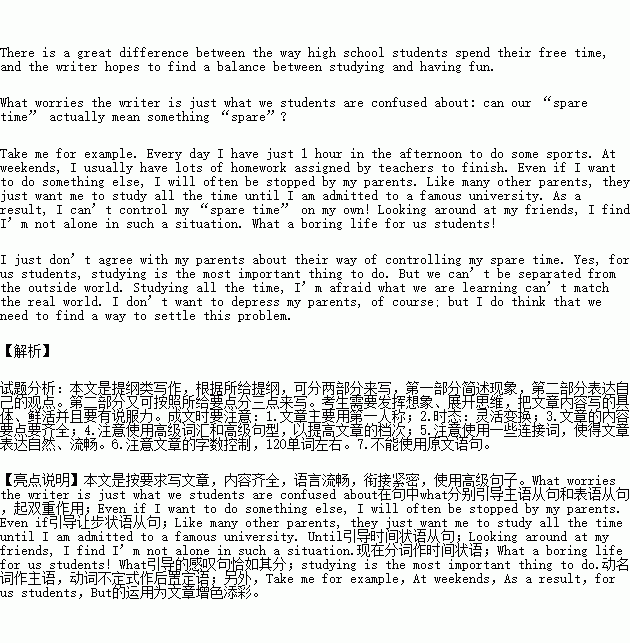题目内容
阅读下面的短文,然后按照要求写一篇150词左右的英语短文。
Middle and high school days are both fun and busy. Students spend their days in class, listening to the interesting and sometimes boring words of the teacher. They spend the short breaks running, playing, and shouting happily before going back to the classroom again. But how should students spend their free time outside school?
In Western countries, it is common for students to have a part-time job after school and at weekends. Students can earn their own money and learn more about the “real world”. They enjoy the extra independence and money, and parents enjoy the quiet house. However, it seems that, in China, parents worry so much about their children’ studies that they would prefer to see their children spending most of their free time studying and preparing for all those exams.
It is natural for parents to feel that way, but I believe the answer lies in balance. Sometimes, Western school children work long hours after school to make money, and so they become too tired to listen in class or have no time for homework. But Chinese students spend so much time on their studies that all else becomes less important until they want that new MP4 player.
So, find a good and healthy balance! If you have a part-time job, you’ll be happy, and your parents will also be happy because you’re spending your hard-earned money and not theirs!
[写作内容]
1) 概括短文的内容要点,该部分的字数大约30词左右;
2) 就“如何利用课余时间”这个主题发表你的看法,至少包含以下的内容要点,该部分的字数大约120词左右:
a. 以自身为例,简述你平时是怎样打发课余时间的;
b. 你如何看待自己利用课余时间的方式;
c. 你的父母对你利用课余时间的态度及你的看法。
[写作要求]
你可以使用实例或其它论述方法支持你的论点,也可以参照阅读材料的内容,但不要抄袭阅读材料中的句子。

